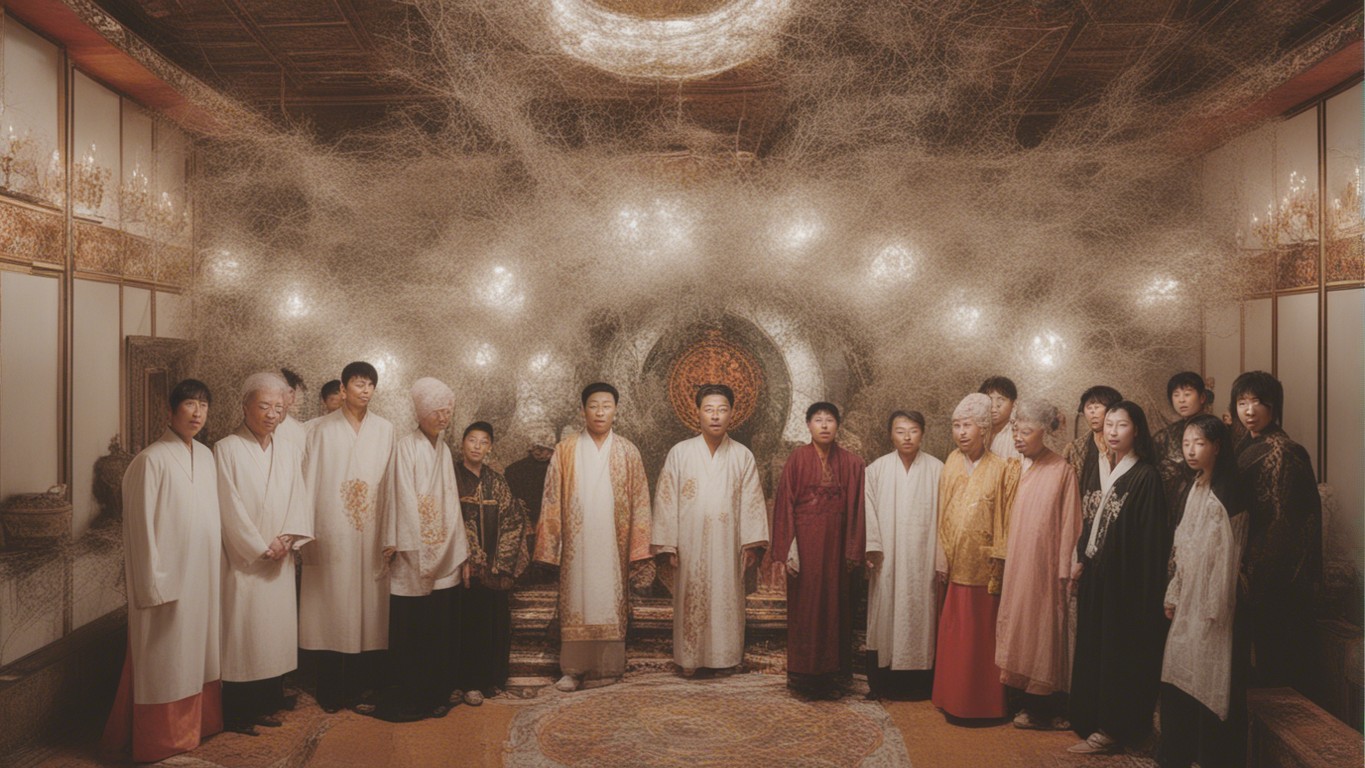Spiritual Ambitions and the Rise of Heaven’s Gathering
Heaven’s Gathering initially presented itself as a revivalist spiritual group that would reconnect people with their spiritual selves. Its meteoric rise in South Korea was fueled by a combination of charismatic leadership, ritualistic practices, and the allure of exclusive knowledge. Leader Chun Junhoe claimed that his teachings were divinely inspired, pulling from various religious and mystical traditions.
“Chun Junhoe skillfully interwove elements from Buddhism, Shamanism, and even New Age spirituality to create a compelling narrative,” said Min-Jae Kim, a professor of religious studies. Membership soared as seekers were drawn by the cult’s emphasis on spirituality, communal living, and the promise of a forthcoming “new era.”
The Charismatic Leader: Chun Junhoe
Chun Junhoe was not just a leader but a figure of worship within Heaven’s Gathering. His followers considered him to be a living deity, a medium through which higher spiritual planes could be accessed. With claims of prophecies and divine visions, Chun had a psychological grip on his followers, many of whom viewed him as their only pathway to salvation.
“Cult leaders often employ a mix of prophetic claims and showmanship to maintain their authority, and Chun was an expert in this,” commented Hye-Jin Lee, an authority on cult behavior.
Mind Control and Isolation Tactics
Once involved, members of Heaven’s Gathering found it increasingly hard to maintain any semblance of their previous life. They were encouraged to cut off contact with non-believing family members and friends and to donate a significant portion of their personal assets to the cult. Many found themselves living in communal compounds, engaged in ritual practices, and bound by stringent codes of behavior designed by Chun and his inner circle.
“Isolation techniques used by Heaven’s Gathering were multi-faceted, involving emotional, financial, and sometimes even physical isolation,” explained Young-Soo Choi, a clinical psychologist specializing in cult deprogramming.
Abuse and Exploitation: The Dark Side Revealed
Internal reports and whistleblowers eventually exposed a darker side of Heaven’s Gathering. Emotional and psychological manipulation was commonplace, designed to make followers completely dependent on the cult for their well-being. Accusations of sexual abuse committed by Chun and high-ranking members added another layer of complexity to the growing scrutiny from law enforcement agencies.
“The group operated under a patriarchal system, where abuse was not only enabled but institutionalized,” pointed out prosecutor Joon-Ho Kim.
Legal Actions and Public Sentiments
A series of lawsuits and investigations tarnished the image of Heaven’s Gathering. Chun Junhoe faced multiple charges, from fraud to more serious criminal offenses like sexual assault. The legal entanglements led to splintering within the group, as once-loyal followers began to question their involvement. Media coverage exposed the cult’s practices to public scrutiny, further diminishing its influence.
“It took a combination of legal actions and media exposure to crack the façade that Chun Junhoe had carefully built around Heaven’s Gathering,” stated Su-Jin Park, a legal journalist who covered the case extensively.
An Ongoing Case Study in Exploitation
Despite the decline in membership and public standing, the legacy of Heaven’s Gathering remains a focal point in studies about cult behavior, particularly in South Korea. Its elaborate blend of spiritual practices, charismatic leadership, and manipulative tactics serve as a stark reminder of the vulnerabilities that can be exploited in the search for spiritual meaning.
“The story of Heaven’s Gathering remains an intricate case study for psychologists, sociologists, and even law enforcement agencies. It illustrates the lengths to which people will go to maintain their faith, even when faced with undeniable evidence of exploitation,” concluded Min-Hee Lee, a sociologist who has authored papers on the subject.
